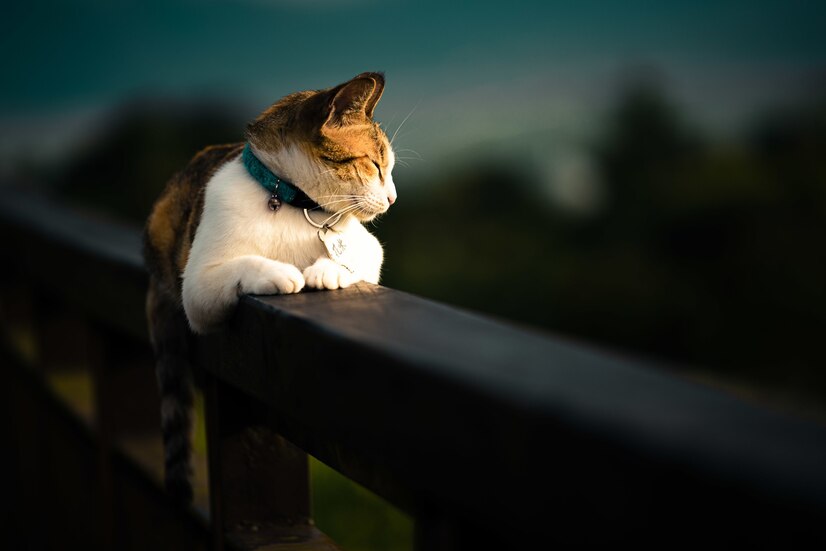If you’re enjoying a slice of pepperoni pizza, it’s tempting to share a bite with your curious cat. But before you offer your cat a piece, you might wonder—can cats eat pepperoni safely?
Pepperoni is a popular topping for humans, but it’s packed with spices, preservatives, and high sodium content, which could be harmful to your cat. Even though cats are carnivores, not all meats are created equal when it comes to their health.
Understanding the risks of feeding pepperoni to cats will help you make better choices for their diet. You’ll want to protect your cat from any potential harm while still giving them tasty and safe treats. Read Also Can Cats Eat Eggs?
Before you share any human food with your cat, especially pepperoni, it’s essential to know what ingredients are safe. Read on to discover whether pepperoni is a good option for your cat!
Can Cats Eat Pepperoni?
No, cats should not eat pepperoni. While it may seem harmless to share a small bite of your favorite pizza topping with your cat, pepperoni contains ingredients that can be dangerous for cats. Let’s take a closer look at why pepperoni is not a safe choice for your cat’s diet.
Why Pepperoni Is Harmful to Cats
Pepperoni is highly processed and contains several ingredients that can cause issues for cats. The main concerns are its high fat, sodium, and spice content. Cats have sensitive digestive systems, and foods that are heavily seasoned, like pepperoni, can lead to stomach upset, vomiting, or diarrhea. Read Can Cats Eat Cherries?
High Sodium Content
Pepperoni is loaded with salt to preserve its flavor and shelf life. A cat’s daily sodium requirement is much lower than a human’s, and consuming too much salt can lead to dehydration, high blood pressure, and in severe cases, sodium poisoning. Symptoms of salt toxicity in cats include excessive thirst, lethargy, and even seizures. Read Can Cats Eat Cheese?
Spices and Additives
Pepperoni contains garlic, onion powder, and various other spices that are toxic to cats. Both garlic and onions can damage a cat’s red blood cells, leading to a condition called hemolytic anemia. Even small amounts of these ingredients can pose a risk.
The Fat Content in Pepperoni
Pepperoni is also high in fat, which can contribute to weight gain and obesity in cats. While cats need some fat in their diet, the excessive fat found in pepperoni is not the healthy kind they need. Over time, feeding fatty foods can increase the risk of pancreatitis, a serious condition that inflames the pancreas. Read also Can Cats Eat Onions? A Deadly Threat
What to Do If My Cat Ate Pepperoni
If your cat accidentally ate pepperoni, don’t panic. While pepperoni isn’t safe for cats, the severity of the situation depends on how much they ate and their overall health. Here’s a guide on what to do if your cat eats pepperoni:
Assess How Much Pepperoni They Ate
The first thing you need to do is figure out how much pepperoni your cat consumed. A tiny nibble might not cause any serious harm, but a larger portion could be more dangerous. Keep in mind that the high salt, fat, and spices in pepperoni can negatively affect their health, so understanding the quantity will help determine the next steps.
Watch for Symptoms
Monitor your cat closely for any signs of discomfort or illness, especially in the first 24 hours. Common symptoms that could indicate a problem include:
- Vomiting
- Diarrhea
- Excessive thirst or urination
- Lethargy
- Tremors or seizures
- Loss of appetite
If you notice any of these symptoms, it’s important to take action immediately, as they could indicate sodium poisoning, pancreatitis, or digestive upset caused by the pepperoni’s spices and fat.
Contact Your Vet
Even if your cat seems fine, it’s a good idea to contact your veterinarian for advice. Explain how much pepperoni your cat ate, and they can guide you on what to do next. If your cat shows any severe symptoms, your vet may recommend bringing them in for an examination. Read Can Cats Eat Bananas?
When to Seek Emergency Help
If your cat shows any of the following severe symptoms, take them to the vet or an emergency clinic immediately:
- Seizures
- Extreme lethargy or collapse
- Difficulty breathing
- Severe vomiting or diarrhea that doesn’t stop
These signs could indicate a serious reaction, such as salt poisoning or pancreatitis, both of which require urgent medical attention.
Better Alternatives for Cats
If you’re looking to treat your cat with something special, it’s best to stick with foods specifically designed for cats. There are many commercial cat treats that offer safe and healthy ingredients your cat will love. You can also offer small amounts of plain cooked chicken or fish as an occasional treat.
Read Also



